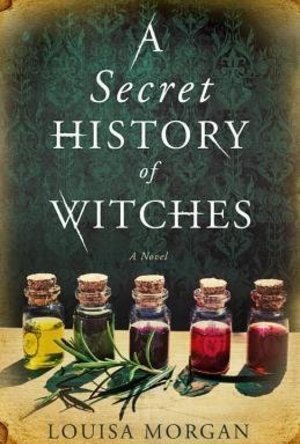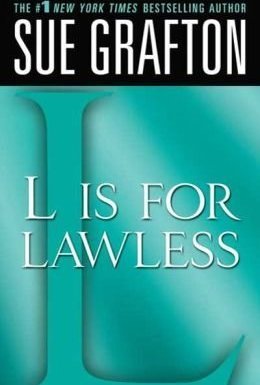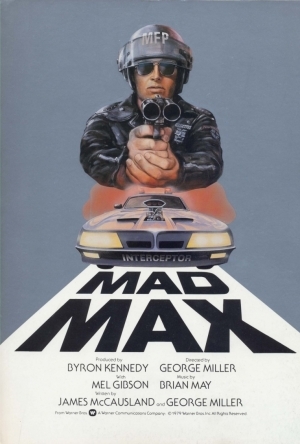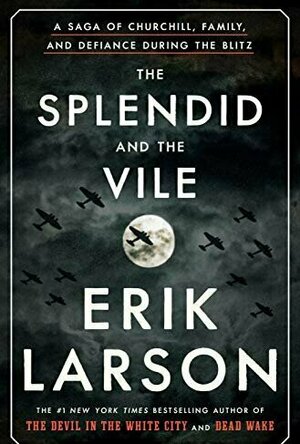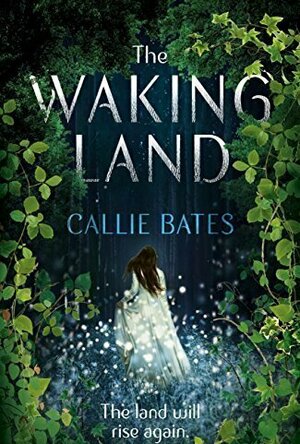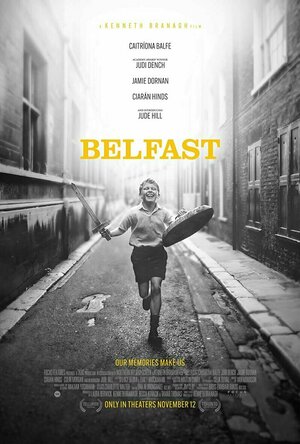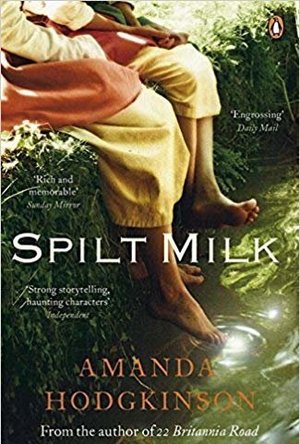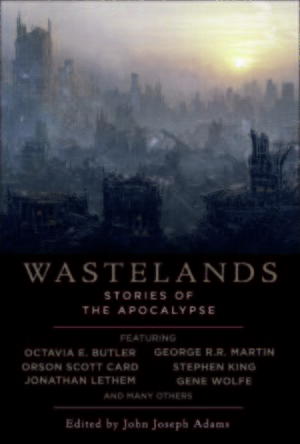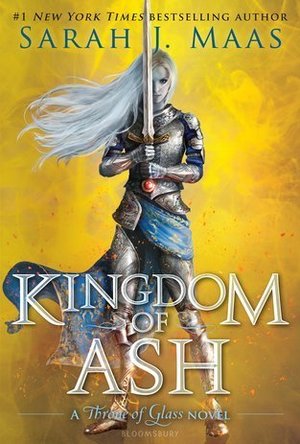Search
Search results
Charley (64 KP) rated A Secret History of Witches in Books
Feb 2, 2019
A whirlwind through time
If you are a lover of historical books and fantasy novels then you might like this. Set in a wide range of time periods, ending just after the second world war, this story follows the life of generations of Romani witches in their struggles to survive.
Even though it took me a while to get into the book (hence the 6 rating) it was really interesting following the lives and struggles of each orchire woman from when they first discover their gift until they have their own daughter to carry on the line. it is amazing to see the development of so many generations of women and you end up feeling part of their story as you watch, sometimes with horror, the trials that they go through just for having the gift of magic.
It is a perfect story that shows how actions have consiquences and how much they were willing to fight for what they love.
I will not go into too much detail but surfice to say it gets more interesting the further you read and the last section of the book was by far the best.
It took me a long time to get into it however i persisted and it was totally worth it.
Even though it took me a while to get into the book (hence the 6 rating) it was really interesting following the lives and struggles of each orchire woman from when they first discover their gift until they have their own daughter to carry on the line. it is amazing to see the development of so many generations of women and you end up feeling part of their story as you watch, sometimes with horror, the trials that they go through just for having the gift of magic.
It is a perfect story that shows how actions have consiquences and how much they were willing to fight for what they love.
I will not go into too much detail but surfice to say it gets more interesting the further you read and the last section of the book was by far the best.
It took me a long time to get into it however i persisted and it was totally worth it.
Mark @ Carstairs Considers (2470 KP) rated L is for Lawless in Books
Sep 8, 2018
Simple Favor Gets Out of Control
Kinsey is taking a rare week off from her PI business for William and Rosie’s wedding, but before she can get too relaxed, Henry asks her for a small favor. One of their neighbors has recently passed, and his family is having a hard time getting the death benefits from the government since they have no record of this man having been in the service during World War II. Kinsey doesn’t intend to get too involved, but when the man’s place is broken into and searched, she becomes curious. Just what is really happening?
I love it when a book takes off in ways I don’t expect, and that’s just what happened with this one. The plot was great, and even when we have most of the answers, there is still the question of what will happen next to Kinsey to keep the pages turning. It is fun to meet the rest of William and Henry’s family, and the character involved in the mystery are as strong as always. A series thread introduced a couple of books back comes into play here again as well. Fans of the series who have missed this one won’t be disappointed.
I love it when a book takes off in ways I don’t expect, and that’s just what happened with this one. The plot was great, and even when we have most of the answers, there is still the question of what will happen next to Kinsey to keep the pages turning. It is fun to meet the rest of William and Henry’s family, and the character involved in the mystery are as strong as always. A series thread introduced a couple of books back comes into play here again as well. Fans of the series who have missed this one won’t be disappointed.
Matthew Krueger (10051 KP) rated Mad Max (1979) in Movies
Jul 7, 2020
Mad Max (1 more)
Dystopian Future
The Man Who You Dont Want To Mess With
What a great way to start of a franchise. The action, the suspense, the drama, the adventure, the dystopian, the revenge and of course Max. You dont want to mess around with him. Cause he will find you and when he does he will kill you. He sets his target on you, and when he does you better run or hide, cause like i said he will kill you.
The plot: In a not-too-distant dystopian future, when man's most precious resource -- oil -- has been depleted and the world plunged into war, famine and financial chaos, the last vestiges of the law in Australia attempt to restrain a vicious biker gang. Max (Mel Gibson), an officer with the Main Force Patrol, launches a personal vendetta against the gang when his wife (Joanne Samuel) and son are hunted down and murdered, leaving him with nothing but the instincts for survival and retribution.
I really like dystopian films, and just the idea of a post apolcyptic future, where survival is the key. And this film is one of them.
Its a must see film, if you haven't seen it.
The plot: In a not-too-distant dystopian future, when man's most precious resource -- oil -- has been depleted and the world plunged into war, famine and financial chaos, the last vestiges of the law in Australia attempt to restrain a vicious biker gang. Max (Mel Gibson), an officer with the Main Force Patrol, launches a personal vendetta against the gang when his wife (Joanne Samuel) and son are hunted down and murdered, leaving him with nothing but the instincts for survival and retribution.
I really like dystopian films, and just the idea of a post apolcyptic future, where survival is the key. And this film is one of them.
Its a must see film, if you haven't seen it.
David Baldacci recommended The Splendid and the Vile: A Saga of Churchill, Family, and Defiance During the Blitz in Books (curated)
Acanthea Grimscythe (300 KP) rated The Waking Land (The Waking Land, #1) in Books
May 16, 2018
Looking for a delightful, magical read? Callie Bates’s The Waking Land may sate your hunger. With several strong, female leads (like Rhia Knoll), the practice of forbidden arts, war, and just a taste of romance, this book easily lands as one of my most enjoyable reads so far this year.
I can honestly say this is one of the few books where the main character begins as the weakest. When we meet Lady Elanna Valtai, she appears weak and, quite honestly, brainwashed by her Ereni up-bringing. Throughout the first two-thirds of the novel, El proves to be unreliable. She is clueless as to where her loyalties truly lie, even as the truth rams itself down her throat. Fortunately, those she counts among her friends know what they’re doing and don’t have to rely on her for quite a while.
Loyce, the new Queen of Eren, on the other hand is an awful brat. Unfaithful to her husband (who readers never meet), she colludes with an equally disgusting noble boy, Denis Falconier. Their command over the Butcher of Novarre strikes fear into the hearts of those that dare to rebel. And the Butcher? He’s an altogether interesting figure on his own. Trust me on that one.
Eren and Caeris, the lands where this tale takes place, on beautifully rendered, proving Bates’s strength with the written word. Her command of language coupled with her love of nature come together seamlessly, visualizing a truly fantastic world. The story Bates weaves into this battle-worn land offers readers a faint taste of epic fantasy, in a style pleasing for fans of young adult literature. For some, The Waking Land may be the gateway to delving into high fantasy – Bates’s concept of magic is that wonderful.
The Waking Land is a fantastic ride through a world that fears magic. It is the timeless tale of how war erodes nations. Because of El’s wishy-washy portrayal and the sheer fact that we don’t see a lot of action until the last fifteen percent of the book, I cannot give this one five stars. A four though, certainly.
I would like to thank NetGalley, the publisher, and the author for providing me with a free copy of this book for the purpose of unbiased review.
I can honestly say this is one of the few books where the main character begins as the weakest. When we meet Lady Elanna Valtai, she appears weak and, quite honestly, brainwashed by her Ereni up-bringing. Throughout the first two-thirds of the novel, El proves to be unreliable. She is clueless as to where her loyalties truly lie, even as the truth rams itself down her throat. Fortunately, those she counts among her friends know what they’re doing and don’t have to rely on her for quite a while.
Loyce, the new Queen of Eren, on the other hand is an awful brat. Unfaithful to her husband (who readers never meet), she colludes with an equally disgusting noble boy, Denis Falconier. Their command over the Butcher of Novarre strikes fear into the hearts of those that dare to rebel. And the Butcher? He’s an altogether interesting figure on his own. Trust me on that one.
Eren and Caeris, the lands where this tale takes place, on beautifully rendered, proving Bates’s strength with the written word. Her command of language coupled with her love of nature come together seamlessly, visualizing a truly fantastic world. The story Bates weaves into this battle-worn land offers readers a faint taste of epic fantasy, in a style pleasing for fans of young adult literature. For some, The Waking Land may be the gateway to delving into high fantasy – Bates’s concept of magic is that wonderful.
The Waking Land is a fantastic ride through a world that fears magic. It is the timeless tale of how war erodes nations. Because of El’s wishy-washy portrayal and the sheer fact that we don’t see a lot of action until the last fifteen percent of the book, I cannot give this one five stars. A four though, certainly.
I would like to thank NetGalley, the publisher, and the author for providing me with a free copy of this book for the purpose of unbiased review.
BankofMarquis (1832 KP) rated Belfast (2021) in Movies
Nov 21, 2021
Underwhelming
The trouble with hearing that a film is a “shoo-in” Oscar film is that I go in with expectations and, sometimes, there is no way the film can live up to the expectations that I have for it.
Such is the case with the new film Written and Directed by Kenneth Branagh, his personal remembrance BELFAST.
Professionally made, with a strong cast and some decent dialogue, BELFAST tells the tale of a young boy growing up in Ireland when “the troubles” (the Irish Civil War between Protestants and Catholics of the late 1960’s) erupts and the family must turn against friends and neighbors and make the difficult decision as to what side of the conflict they should be one - and whether they should stay in Ireland or move to England.
We see this world through the eyes of 9 year old Buddy (Jude Hill). Consequently, we only gets bit and pieces of the story as he starts to understand what is going on. And that is part of the problem with this film. We receive the information in bits and pieces on the level of a child. And the premise just doesn’t work, for his parents and grandparents constantly attempt to shield the child from the goings-on in the world (and thus shield the audience).
Branagh’s script is underwritten and slight - but he turns it over to some tremendous performers who elevate it to something better than it is.
Veteran actors Dame Judi Dench and Ciaran Hinds are fine comic relief in this film as the Grandparents who are wise and seeing that the world that they once knew is changing. These two aging thespians bring a spark to this film, for it is pretty limp otherwise.
The conflict between Pa (Jamie Doran - 50 SHADES OF GREY) and Ma (Citrione Balfe - OUTLANDER) over the families’ reaction to the events outside of their home never really crescendoes with any power. Again, I blame the writing. The conflict between these two is just not interesting enough. So, if I don’t blame the writing, I’ll blame the Directing - which is also by Branagh.
Balfe is being touted as a Best Actress Oscar contender, and I can see how she might get one, as she does have “the Oscar Speech”, but there is not much more to recommend here.
This film is professionally done and acted well enough - there just needed to be more “there” there.
Letter Grade B-
6 Stars (out of 10) and you can take that to the Bank(ofMarquis)
Such is the case with the new film Written and Directed by Kenneth Branagh, his personal remembrance BELFAST.
Professionally made, with a strong cast and some decent dialogue, BELFAST tells the tale of a young boy growing up in Ireland when “the troubles” (the Irish Civil War between Protestants and Catholics of the late 1960’s) erupts and the family must turn against friends and neighbors and make the difficult decision as to what side of the conflict they should be one - and whether they should stay in Ireland or move to England.
We see this world through the eyes of 9 year old Buddy (Jude Hill). Consequently, we only gets bit and pieces of the story as he starts to understand what is going on. And that is part of the problem with this film. We receive the information in bits and pieces on the level of a child. And the premise just doesn’t work, for his parents and grandparents constantly attempt to shield the child from the goings-on in the world (and thus shield the audience).
Branagh’s script is underwritten and slight - but he turns it over to some tremendous performers who elevate it to something better than it is.
Veteran actors Dame Judi Dench and Ciaran Hinds are fine comic relief in this film as the Grandparents who are wise and seeing that the world that they once knew is changing. These two aging thespians bring a spark to this film, for it is pretty limp otherwise.
The conflict between Pa (Jamie Doran - 50 SHADES OF GREY) and Ma (Citrione Balfe - OUTLANDER) over the families’ reaction to the events outside of their home never really crescendoes with any power. Again, I blame the writing. The conflict between these two is just not interesting enough. So, if I don’t blame the writing, I’ll blame the Directing - which is also by Branagh.
Balfe is being touted as a Best Actress Oscar contender, and I can see how she might get one, as she does have “the Oscar Speech”, but there is not much more to recommend here.
This film is professionally done and acted well enough - there just needed to be more “there” there.
Letter Grade B-
6 Stars (out of 10) and you can take that to the Bank(ofMarquis)
Hazel (1853 KP) rated Spilt Milk in Books
Dec 14, 2018
<i>I received this book for free through Goodreads First Reads.</i>
<i>Spilt Milk</i> is the second historical novel by Amanda Hodgkinson, award-winning British author of <i>22 Britannia Road</i>. Split into two parts it follows the lives of two sisters over several decades during the first half of the twentieth century. Set in Britain, this is a novel about relationships, family, secrets… and illegitimate pregnancies. Lots of illegitimate pregnancies.
The first part spans from 1913 until 1917 thus covering the First World War period. The second part picks up the storyline in 1939 and continues until the novel’s final pages set in 1965. So yet another world war is included, although it has little impact on the plot. The first chapter is almost like the calm before the storm. Everything appears peaceful and happy until everything spirals out of control. Vivian and Nellie Marsh (aged twenty three and twenty two) have been raised by their older sister Rose in a small farmhouse since the death of their parents when Nellie was a baby. We first meet Nellie rinsing chamber pots outside where she has a feeling that something is going to happen; something good, she hopes. Alas, it turns out it was a bad feeling after all as floodwaters rise and Rose dies. The only apparent good thing is the arrival of a hired farm hand, Joe Ferier. But no, that is also a bad occurrence that leaves one sister pregnant and the other temporarily homeless.
Over the years we see how the sisters deal with the way in which their lives have drastically changed up until Nellie has a child with her husbands brother. Luckily her husband is willing to pass the child off as his own, and so Nellie, unlike the other secret pregnancies in this story, actually gets to keep her love child.
At the start of part two, Nellie’s daughter Bertha (commonly known as Birdie) is eighteen years old and finds herself – can you guess? – pregnant after a one night stand. So that it can remain secret she goes to live with her Aunt Vivian until the baby is born and adopted. Vivian ends up housing many girls including a couple of minor characters who have got themselves in a similar way. I did say there were a lot of illegitimate pregnancies! It also comes to light that supposedly innocent, spinster Rose had not one but two babies during her teenage years.
The remainder of the novel shows us how the girls: Nellie, Vivian and Birdie; get on with their lives under the burden of their personal secrets and emotions. It is Birdie who struggles the most with the knowledge that her daughter is growing up without her but to talk to anyone about it would have deep consequences.
The size of the time period means that the reader can become attached to certain key characters and feel their pain as they struggle with their emotional afflictions, however each scene passes quickly as time goes on which means we do not really get to appreciate the minor characters.
Overall it is a good, reasonably quick read which many women would enjoy, particularly those who appreciate historical fiction and may have sisters of their own and therefore understand what the power of keeping secrets can result in.
<i>Spilt Milk</i> is the second historical novel by Amanda Hodgkinson, award-winning British author of <i>22 Britannia Road</i>. Split into two parts it follows the lives of two sisters over several decades during the first half of the twentieth century. Set in Britain, this is a novel about relationships, family, secrets… and illegitimate pregnancies. Lots of illegitimate pregnancies.
The first part spans from 1913 until 1917 thus covering the First World War period. The second part picks up the storyline in 1939 and continues until the novel’s final pages set in 1965. So yet another world war is included, although it has little impact on the plot. The first chapter is almost like the calm before the storm. Everything appears peaceful and happy until everything spirals out of control. Vivian and Nellie Marsh (aged twenty three and twenty two) have been raised by their older sister Rose in a small farmhouse since the death of their parents when Nellie was a baby. We first meet Nellie rinsing chamber pots outside where she has a feeling that something is going to happen; something good, she hopes. Alas, it turns out it was a bad feeling after all as floodwaters rise and Rose dies. The only apparent good thing is the arrival of a hired farm hand, Joe Ferier. But no, that is also a bad occurrence that leaves one sister pregnant and the other temporarily homeless.
Over the years we see how the sisters deal with the way in which their lives have drastically changed up until Nellie has a child with her husbands brother. Luckily her husband is willing to pass the child off as his own, and so Nellie, unlike the other secret pregnancies in this story, actually gets to keep her love child.
At the start of part two, Nellie’s daughter Bertha (commonly known as Birdie) is eighteen years old and finds herself – can you guess? – pregnant after a one night stand. So that it can remain secret she goes to live with her Aunt Vivian until the baby is born and adopted. Vivian ends up housing many girls including a couple of minor characters who have got themselves in a similar way. I did say there were a lot of illegitimate pregnancies! It also comes to light that supposedly innocent, spinster Rose had not one but two babies during her teenage years.
The remainder of the novel shows us how the girls: Nellie, Vivian and Birdie; get on with their lives under the burden of their personal secrets and emotions. It is Birdie who struggles the most with the knowledge that her daughter is growing up without her but to talk to anyone about it would have deep consequences.
The size of the time period means that the reader can become attached to certain key characters and feel their pain as they struggle with their emotional afflictions, however each scene passes quickly as time goes on which means we do not really get to appreciate the minor characters.
Overall it is a good, reasonably quick read which many women would enjoy, particularly those who appreciate historical fiction and may have sisters of their own and therefore understand what the power of keeping secrets can result in.
Hadley (567 KP) rated Wastelands: Stories of the Apocalypse in Books
Aug 19, 2020
From the Book of Revelations to the Road Warrior; from A Canticle for Leibowitz to the Road, storytellers have long imagined the end of the world, weaving eschatological tales of catastrophe, chaos, and calamity. In doing so, these visionary authors have addressed one of the most challenging and enduring themes of imaginative fiction: the nature of life in the aftermath of total societal collapse.
Overall, there were a few good stories inside this book, but some of them seemed out of place, and there were ones that were just boring or not written well (like ending the story just to make it a short story). I only recommend this book to people who absolutely love dystopian stories, but for those who are just light readers of it, I don't think you'd enjoy it.
Being that this is a review for a handful of short stories, I am only going to mention the ones I really liked.
"Salvage" by Orson Scott Card
A long time after atom bombs have destroyed most of the Earth, a young man named Deaver finds out that there may be gold hidden within a Mormon temple, and he's willing to risk everything to get it.
I loved the story, the characters, and the playful banter between them.
"Bread and Bombs" by M. Rickert
During war time, children become curious about an odd neighbor who moves in. Parents demand that their children stay away from them because the neighbor's people are the reason so many people have died.
I liked that the story is through the childrens' eyes, not the adults.
"Dark, Dark Were the Tunnels" by George R. R. Martin
In the story that follows, you'll meet Greel. He is a scout of the People. He's penetrated the Oldest Tunnels, where the taletellers said the People had come from a million years ago. He is no coward, but he is afraid, and with good reason. You see, he's very used to being in the dark, but some visitors have come to the tunnels, and they've brought light with them...
I really liked the whole idea of people tunneling underground when nuclear war happens; there are not enough stories written about this!
"Never Despair" by Jack McDevitt
'Never Despair' tells the story of Chaka Milana, a woman who leaves her hometown in search of a storied place that holds the secrets of the Roadmakers, the almost-mythical builders of the concrete strips that cover the land, and the ruined cities with towers so high that a person could not ascend one in a day.
The story was so good that I wish it were a novel.
"Artie's Angels" by Catherine Wells
A post-apocalyptic society involving bicycles and young men.
This was probably my most favorite story out of the entire book!
"Inertia" by Nancy Kress
A story about the victims of a disfiguring epidemic who are interned in the modern equivalent of leper colonies.
Kress was able to make such a big picture out of very few characters, and in just a few pages. Really well-written.
"The End of the World As We Know It" by Dale Bailey
A lone survivor of an apocalypse attempts to grapple with the emotional dimension of his loss.
Just a really good story.
Overall, there were a few good stories inside this book, but some of them seemed out of place, and there were ones that were just boring or not written well (like ending the story just to make it a short story). I only recommend this book to people who absolutely love dystopian stories, but for those who are just light readers of it, I don't think you'd enjoy it.
Being that this is a review for a handful of short stories, I am only going to mention the ones I really liked.
"Salvage" by Orson Scott Card
A long time after atom bombs have destroyed most of the Earth, a young man named Deaver finds out that there may be gold hidden within a Mormon temple, and he's willing to risk everything to get it.
I loved the story, the characters, and the playful banter between them.
"Bread and Bombs" by M. Rickert
During war time, children become curious about an odd neighbor who moves in. Parents demand that their children stay away from them because the neighbor's people are the reason so many people have died.
I liked that the story is through the childrens' eyes, not the adults.
"Dark, Dark Were the Tunnels" by George R. R. Martin
In the story that follows, you'll meet Greel. He is a scout of the People. He's penetrated the Oldest Tunnels, where the taletellers said the People had come from a million years ago. He is no coward, but he is afraid, and with good reason. You see, he's very used to being in the dark, but some visitors have come to the tunnels, and they've brought light with them...
I really liked the whole idea of people tunneling underground when nuclear war happens; there are not enough stories written about this!
"Never Despair" by Jack McDevitt
'Never Despair' tells the story of Chaka Milana, a woman who leaves her hometown in search of a storied place that holds the secrets of the Roadmakers, the almost-mythical builders of the concrete strips that cover the land, and the ruined cities with towers so high that a person could not ascend one in a day.
The story was so good that I wish it were a novel.
"Artie's Angels" by Catherine Wells
A post-apocalyptic society involving bicycles and young men.
This was probably my most favorite story out of the entire book!
"Inertia" by Nancy Kress
A story about the victims of a disfiguring epidemic who are interned in the modern equivalent of leper colonies.
Kress was able to make such a big picture out of very few characters, and in just a few pages. Really well-written.
"The End of the World As We Know It" by Dale Bailey
A lone survivor of an apocalypse attempts to grapple with the emotional dimension of his loss.
Just a really good story.
Lyndsey Gollogly (2893 KP) rated Kingdom of Ash (Throne of Glass #7) in Books
Mar 9, 2020 (Updated Jun 7, 2020)
Contains spoilers, click to show
97 of 200
Book
Kingdom of Ash ( Throne of glass book 7)
By Sarah J Maas
Aelin Galathynius's journey from slave to assassin to queen reaches its heart-rending finale as war erupts across her world …
She has risked everything to save her people – but at a tremendous cost. Locked in an iron coffin by the Queen of the Fae, Aelin must draw upon her fiery will to endure the months of torture inflicted upon her. The knowledge that yielding to Maeve will doom those she loves keeps her from breaking, but her resolve is unravelling with each passing day…
With Aelin imprisoned, Aedion and Lysandra are the last line of defence keeping Terrasen from utter destruction. But even the many allies they've gathered to battle Erawan's hordes might not be enough to save the kingdom. Scattered throughout the continent and racing against time, Chaol, Manon, and Dorian must forge their own paths to meet their destinies. And across the sea Rowan hunts to find his captured wife and queen – before she is lost to him.
Some bonds will deepen and others be severed forever, but as the threads of fate weave together at last, all must fight if they are to find salvation – and a better world.
Wow!!!!
I don’t know where to start these books have gotten me through some tough times from the dirty assassin dragged from endovier to the queen riding a white stag into battle,I’ve walked every step with her! Everything single character has made me laugh,scream,shout,gasp and cry or any other available emotion. I almost can’t believe it’s over Sarah J Maas has a massive talent her world building is just amazing!
So we finally see them all come to the end of their journey’s end and this 1000 page book did not disappoint I’ve not cried at a book for a while but this one had me in tears a few times! They all have so much to contend with and still find strength in each other to keep fighting to keep the darkness out! I loved both Erawan and Maeves endings they were absolutely perfect. I really could rattle on for hours thank you Sarah for bringing such a beautiful series! What’s next??? Start again!!!!
Book
Kingdom of Ash ( Throne of glass book 7)
By Sarah J Maas
Aelin Galathynius's journey from slave to assassin to queen reaches its heart-rending finale as war erupts across her world …
She has risked everything to save her people – but at a tremendous cost. Locked in an iron coffin by the Queen of the Fae, Aelin must draw upon her fiery will to endure the months of torture inflicted upon her. The knowledge that yielding to Maeve will doom those she loves keeps her from breaking, but her resolve is unravelling with each passing day…
With Aelin imprisoned, Aedion and Lysandra are the last line of defence keeping Terrasen from utter destruction. But even the many allies they've gathered to battle Erawan's hordes might not be enough to save the kingdom. Scattered throughout the continent and racing against time, Chaol, Manon, and Dorian must forge their own paths to meet their destinies. And across the sea Rowan hunts to find his captured wife and queen – before she is lost to him.
Some bonds will deepen and others be severed forever, but as the threads of fate weave together at last, all must fight if they are to find salvation – and a better world.
Wow!!!!
I don’t know where to start these books have gotten me through some tough times from the dirty assassin dragged from endovier to the queen riding a white stag into battle,I’ve walked every step with her! Everything single character has made me laugh,scream,shout,gasp and cry or any other available emotion. I almost can’t believe it’s over Sarah J Maas has a massive talent her world building is just amazing!
So we finally see them all come to the end of their journey’s end and this 1000 page book did not disappoint I’ve not cried at a book for a while but this one had me in tears a few times! They all have so much to contend with and still find strength in each other to keep fighting to keep the darkness out! I loved both Erawan and Maeves endings they were absolutely perfect. I really could rattle on for hours thank you Sarah for bringing such a beautiful series! What’s next??? Start again!!!!
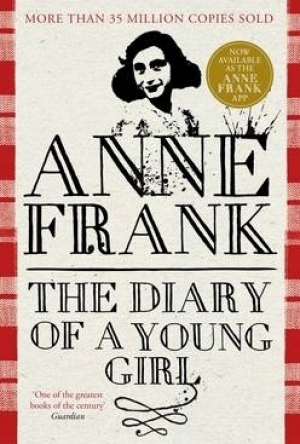
The Diary of a Young Girl
Anne Frank, Mirjam Pressler and Otto Frank
Book
One of the most famous accounts of living under the Nazi regime of World War II comes from the diary...
